- Home
- Brian Garfield
Fear in a Handful of Dust Page 4
Fear in a Handful of Dust Read online
Page 4
The interview had been taped yesterday morning. Certain things about the televised image disturbed him. The brown slacks and pale yellow turtleneck looked proper for the tone of casual informality he’d intended to set but the turtleneck betrayed his paunch. His pale hair, cropped close to the skull like fuzz on a tennis ball, gave him the look of a man of forty-five trying to emulate a collegian. I must take off weight and let the hair grow out a bit, he told himself.
The face was not quite as it looked in his shaving mirror each morning. He was distressed. The mouth had a way of folding primly at the conclusion of each statement. At other times as he listened to the interviewer’s questions the mouth seemed too small and as rigid as a coin slot. He had extraordinarily thin lips.
He did not listen to the dialogue; he remembered clearly what had been asked and answered; he had comported himself well. But television was not a vehicle for words. He watched the mobile face as though he were a patient being counseled: would I have confidence in this practitioner?
He decided that he probably would. But there was something about that mouth that troubled him.
When the program ended he switched on the light above his chair, extinguished the television set and walked back into the bathroom. He faced the mirror and spoke loudly to himself and watched his mouth move: he tried to do it without punctuating each phrase with that prim grimace.
Quickly he realized that it was going to be a very hard habit to break.
A shadow loomed behind him in the mirror.
My dear sweet God. Duggai!
6
There wasn’t room for a fourth on the bunk. Mackenzie watched Duggai bundle the trembling Dana into the truck and heard the swift intake of Shirley Painter’s breath. Beside him Jay Painter had gone absolutely still and was watching Duggai surreptitiously out of the corners of his vision—as one might watch a poisonous reptile poised above one’s chest.
Now he’ll be having his fun with us, Mackenzie thought; bleakly he wondered just what form it would take.
Earle Dana sat down on the floor at Duggai’s bidding. Mackenzie watched their captor pull the noose tight around Dana’s ankles. Dana’s wrists like the others’ were wired behind his back and now Duggai fastened them to a leg of the cookstove; the gag in his mouth and the clothesline were identical to theirs.
San Jose, Mackenzie thought. Now where?
The truck started up and he heard Earle Dana’s sudden grunt; then there was an awkward scrabbling as Earle moved around trying to wedge himself into some position in which he wouldn’t get battered.
Mackenzie was thinking: If Duggai only knew—confining the four of us together is punishment enough.…
Somewhere in the timeless run of the night the truck stopped and Duggai let them out one at a time, freeing their mouths, feeding them sandwiches, giving them a little water to drink, allowing them two minutes to relieve themselves. It was a roadside rest area—a back road deserted in the starlight, California hills heavy on the horizons. Mackenzie found it impossible to guess their location.
Within a quarter of an hour they were on their way again, four people confined in blind fear. Jay Painter kept banging against Mackenzie’s shoulder as the truck pitched them around. Each time Jay would draw away quickly as if he were trying to avoid a contaminating contact. In his pain Mackenzie almost smiled.
The skill with which Duggai had worked it all out impressed him. Clearly Duggai had a very specific destination in mind for them. He could have told them where he was taking them; it would have made no difference to their helplessness. But by keeping them ignorant he was fueling their terrors. His refusal to explain was more hideously sinister than any specified threat.
The gags on their mouths, the tying of hands and feet, the closing of curtains in the camper—these were matters of elementary security, to be sure, but they were also instruments of psychic torment. It was not accident; it was part of a scheme that had been honed down to the least factor. Incarcerate four surprised people in darkness, bind them painfully, prevent them from communicating with one another—and you had gone a good part of the way toward driving them into madness.
He heard the sighing sobs of Earle Dana’s hysteria; Earle was flinging himself about in a panic-stricken effort to get loose. Now and then some part of him would carom off Mackenzie’s knee.
Finally in half-strangled exhaustion Earle gave it up. Mackenzie heard beside him Jay Painter’s disgruntled snort.
Daylight penetrated the curtains. He was able to see their faces, distorted by the ropes and gags. Shirley watched him for a time; he couldn’t make out her expression and when Jay realized she was locking glances with Mackenzie he scowled at her and Shirley looked away. On the floor at Mackenzie’s feet Earle seemed only half conscious. There was a dried trickle of blood on his upper lip.
The truck was going at a good clip up a smooth highway; the tires howled. As the morning advanced the sun made an oven of the aluminum camper body. Sweat formed on Mackenzie’s face, under his arms, in his crotch. His eyes were gritty.
He tried to occupy himself with vague mental exercises. Nothing did much good; the discomfort was too acute. He was sure his hands were damaged by now—except for a very brief unstrapping eight hours ago they had been wired together continuously nearly three times the clock around.
Thoughts of the dog crossed his mind.
The truck went off the interstate once; he guessed it to be around noon. The camper stopped. He heard the clank of a filler-hose nozzle going into the fuel funnel. Mackenzie desperately bounced up and down, jiggling the camper, until Duggai’s voice growled at him through the aluminum: “Shut up in there. Ain’t nobody can see it.” So it was a self-service pump.
Finally they were moving again. The heat was intense. His clothing became sodden with sweat. The enclosed airless cabin began to stink; he worried about carbon monoxide poisoning but there was nothing they could do about it. Actually there were probably cracks in the camper’s construction; concerned, he felt currents of air on his ankles; it was only the heat that made it seem sucked empty of oxygen.
His mind performed an idle calculation. Duggai had come down off the Sierra with Mackenzie alone in the camper yesterday morning and they had stopped once to fuel the tank, probably at eleven o’clock or so. Then they had driven perhaps two and a half hours and stopped in Palo Alto. Most of that section of the drive had been on a freeway: assume a hundred miles.
Then they had waited through the afternoon and the waning evening. An hour or so before dark Duggai had left the truck parked on the street. During the ensuing hour Mackenzie had torn his wrists trying to free himself but had got nowhere against his shackles. Some time after dark Duggai had returned with the Painters and put them in the truck. Then they’d ridden for an hour or an hour and a half, a good part of it on freeways again, down to San Jose to collect Earle Dana. That hadn’t taken long—Duggai had left the truck for no more than fifteen minutes and returned with the fourth prisoner.
They’d left San Jose not later than half past ten at night. They’d gone slowly for the next two hours or so—traveling back streets and country roads from the feel of it. Some time after midnight they’d entered a freeway; no telling which one—California was scarred everywhere with them.
And for the past twelve hours Duggai had been driving steadily except for the brief interval when he’d let them out of the truck one at a time.
Even assuming they’d been traveling no faster than fifty miles an hour on the freeways it meant Duggai had put at least 750 miles on the truck since he’d last refueled.
A three-quarter-ton truck of this kind couldn’t make better than eighteen or twenty miles to the gallon. It would need a forty-gallon tank to have gone that long without refilling. Mackenzie hadn’t heard of any pickup truck with a tank bigger than twenty-five gallons’ capacity.
There must be a reserve tank, something added to the truck’s normal capacity. Mackenzie had known a few ranchers who’d had reserve tanks
installed under the passenger seats of their pickups. It made the vehicle into a death trap if there were an accident—the driver and his passengers rode directly on top of the added fuel—but it extended the range of the truck to as much as a thousand miles.
It meant Duggai could be taking them anywhere.
It was after dark when the truck left the freeway. Mackenzie had been asleep; the lurching brought him awake. Against his shoulder Jay Painter’s weight was tipped un-caringly; Jay was snoring softly against his gag; in his sleep his hatred had dissipated and he was leaning against Mackenzie as a welcome pillow. Mackenzie didn’t wake him. Jay was welcome to his resentment but there’d be little point compounding it now.
Mackenzie heard the roar of a souped-up car. Shortly afterward the truck eased to a stop, waited briefly and started moving again. Probably a traffic light: they were in a town. He heard more traffic intermittently. Streetlights briefly lit up the curtains and then faded behind.
Then they were out in empty darkness running along an uneven paved surface; no longer a freeway but neither was it an urban street. A country road most likely; and from its lack of bends it could be in the desert.
He drowsed again, fighting his body’s agonies, but he was aware of it when the truck left the paved surface and went bucking across the expressively musical grid of a cattle-guard. For a crazy moment he wondered if they’d gone full circle and returned to the Sierras.
It was a dirt road with a good graded surface. The choking stink of fine alkali dust filled the compartment but the truck ran along at a good clip without jouncing much.
Beside him Jay came awake with a start and recoiled away from him. Mackenzie heard the sudden swift rush of Jay’s fast breathing when recollection brought terror back into his consciousness.
At his feet Earle Dana stirred and groaned. Mackenzie kept his raw eyes shut and tried to ignore everything: there was nothing to do but wait stoicly for this interval to pass; if he were still alive at the end of the journey he would think about things then.
Somewhere in the midst of the night Duggai stopped the truck and let them out again one by one. When it was Mackenzie’s turn he stood abaft the tailgate rubbing his wrists gingerly and watching Duggai.
Duggai indicated the canteen with his revolver and stepped back two paces. Mackenzie had trouble lifting the canteen: there was no strength at all in his hands. Finally by using his elbows to prop it he got it to his lips and drank slowly, forcing himself not to gorge. The tissues of his mouth had been eroded by the gag and the water stung ferociously as he ingested it.
Duggai watched him relieve himself at the side of the road. Mackenzie took the opportunity to survey the horizons. It was desert country—rocks and brush, the occasional spindle tracery of cactus. They were ringed by barren hills and mountains. More likely Arizona or Utah than California.
Duggai fed him a sandwich and another drink, then did his hands up again and replaced the gag. This time Mackenzie knew it was a method of torment rather than security; in this open empty wilderness there was no practical reason to keep the prisoners gagged. Duggai shoved him back into the truck and hauled Earle Dana out, the last of them. When the gag was removed from Earle’s mouth Mackenzie heard him try to speak; nothing came out but a dry wheezing cackle.
Finally Earle was back in place on the metal floor and the truck was moving again. Perhaps, Mackenzie thought, perhaps I have died and am in Hell because surely this is what Hell is all about.
Either the road petered out or Duggai left it deliberately; in either case the effect was the same—the ride became more violent, the truck bucked and pitched at decreasing road speed until after a while it was lurching along at a walking pace, the transmission singing in low gear. When the pitch bent uphill Mackenzie felt and heard the slap and whine of the four-wheel engage. Jay Painter was flung against him more frequently now and several times Mackenzie couldn’t prevent the back of his head from rapping the metal wall. Quite evidently Duggai was picking a path across rock-strewn country—certainly this was no road—and Mackenzie was certain Duggai was using starlight alone to see by; there wasn’t the faint reflection of red taillights at the back window that he’d grown used to.
It went on without relief and almost without end: there had never been a longer night in Mackenzie’s experience. But the mind’s instinct for self-protection cloaked him in a kind of withdrawn indifference so that experience and pain were distanced: he was not unaware of them but his awareness was abstract, dreamlike. Partly he knew it was the effect of trauma to the psyche: a kind of medical shock. Partly it was the cumulative result of thirst and hunger and fatigue and terror. Abruptly for the first time he was able to comprehend the bovine indifference of the Jews who had let themselves be marched into the gas ovens. Protective withdrawal.
They were going over mountains of substantial proportion; he guessed that much from the strain of the truck’s engine and the length of time during which they climbed. Then there was an even more painful hour or more of downslope maneuvering; Duggai was using the gears and perhaps occasionally the handbrake but never once did Mackenzie see the flash of the brakelights.
Abruptly and for no accountable reason he believed he saw the end intention of Duggai’s plan.
If he was correct then this was not Hell; this was mere Purgatory on a route charted toward Hell by the brown Charon at the wheel of the pickup.
The truck stopped; it was still dark; Mackenzie was wide awake now, hollow-hearted with anticipatory fear. He felt the truck relax on its springs when Duggai stepped out. The rear door opened. Duggai was a heavy silhouette against the night. Fragments of starlight glinted briefly on the barrel of the Magnum. Duggai climbed up into the camper bed and untied their feet quickly—almost carelessly because he knew no one had the strength or circulation to kick him.
Having untied all their feet Duggai backed out and jumped down and took Shirley by the arm because she was closest to him. Mackenzie saw her feet give way under her when she tried to get up. Duggai dragged her out bodily by the shoulder; she fell off the tailgate and Mackenzie heard her muffled outcry.
His feet free, Mackenzie moved them experimentally. They had no feeling in them. His right foot slid to one side and he remembered the folded plastic raincoat. In the spi-raling bleak chaos of his thoughts there was a pinprick of alertness to its potential importance.
Duggai was hauling Jay Painter off the bunk seat. Jay fell to his knees and crawled precariously toward the tailgate where Duggai reached up for his collar and dragged him out face down; Jay was rolling to one side when he fell out of Mackenzie’s sight and there was a terrible loud thud when he hit the ground but Mackenzie suspected he had been able to take the fall on his shoulder rather than his face.
Earle Dana lay with his feet toward Duggai and Duggai simply took him by one ankle and dragged him sliding out of the truck.
Earle managed somehow to explode an angry roar around the gag in his mouth: Mackenzie saw him lash back with his free leg and strike out, kicking at Duggai with his heel.
Duggai whipped the Magnum down and Mackenzie heard it plainly, sickeningly, when the heavy revolver hit Earle’s shin. There was no mistaking the crack of sound: it had broken Earle’s shinbone.
Duggai heaved Earle bodily out of the truck and no gag could have silenced the shriek of pain.
It was a scream that Mackenzie used to cover the scrape of his own movement. Sliding his foot quickly toward the tailgate he kicked clumsily at the floor. His purpose was to hurl the plastic raincoat out of the truck. It was a small thing of no weight; he saw it flicker as it sailed out over the bumper of the pickup but he was sure Duggai hadn’t noticed it—Duggai was stooped in rage above Earle, ready to strike again with his bludgeon.
Mackenzie eased his way along the seat toward the back. When Duggai grabbed his bicep he was ready for it and let himself go slack; Duggai yanked him out of the truck and Mackenzie took the fall harmlessly on his hip and shoulder.
The folded rect
angle of plastic lay just beneath the left taillight. Starlight winked off its surface.
Duggai went back to examine Earle Dana. It was evident Earle had lost consciousness—shock, nothing more; he hadn’t been hit on the head. Duggai was doing something with his hands behind Earle’s back. After a moment Mackenzie realized what it was: Duggai was removing the wire manacles from Earle’s hands.
The wire clattered when Duggai threw it into the back of the truck. Then Duggai put his Magnum away in his belt, snugging it down. He went into a pocket and Mackenzie, sitting up slowly, watched him unfold a pocketknife.
Duggai came forward hefting the blade. “Belly down, Captain.”
Mackenzie obeyed. His own awkwardness infuriated him.
He was expecting Duggai to remove the wire from his wrists or the gag from his mouth; he froze in twanging panic when he felt the cold prick of the knife against his spine.
“I wouldn’t move,” Duggai said.
Then there was a tugging, a snagging sound of rending cloth—and suddenly Duggai was tearing the clothes off him. In horrified paralysis Mackenzie lay perfectly still while the knife ravaged his clothing and Duggai pulled shreds of cloth away from his flesh. He felt the sharp blade tug his belt tight and saw its way outward through the leather until the belt parted; then the blade was whisking down his pant legs from waistline to ankles; the sleeves were parted like halved ripe melons and fell away from his arms; and nothing that had gone before was half so icily terrifying as the whisper of the keen blade in fast strokes within millimeters of his flesh.
The boot took him completely by surprise, snapping perfunctorily into his ribs: not a brutal blow, not hard enough to damage him—a tap for attention.
“Roll over, Captain. Roll off the rags.”
He rolled onto his back and lay stark naked in the night, his hands still wired behind him, his mouth still gagged. The hulking silhouette above him moved: Duggai picked up the shreds of Mackenzie’s clothes and threw them into the camper.

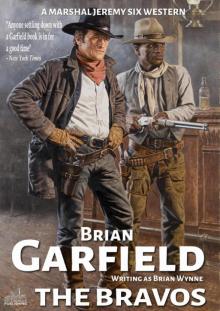 Marshal Jeremy Six #3
Marshal Jeremy Six #3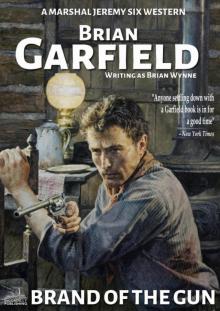 Marshal Jeremy Six #6
Marshal Jeremy Six #6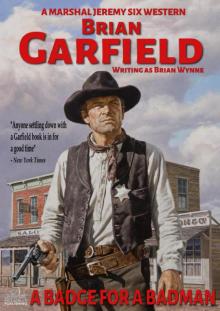 Marshal Jeremy Six #5
Marshal Jeremy Six #5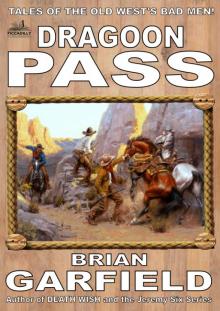 The Outlaws 2
The Outlaws 2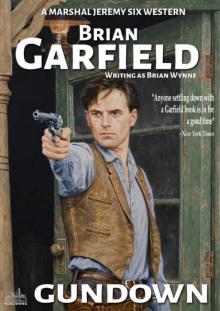 Marshal Jeremy Six #7
Marshal Jeremy Six #7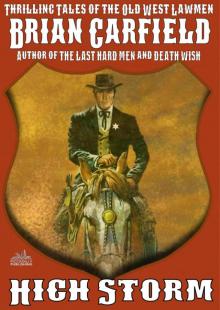 The Lawbringers 4
The Lawbringers 4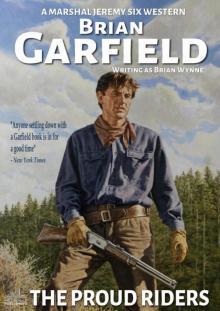 Marshal Jeremy Six #4 the Proud Riders
Marshal Jeremy Six #4 the Proud Riders The Romanov succession
The Romanov succession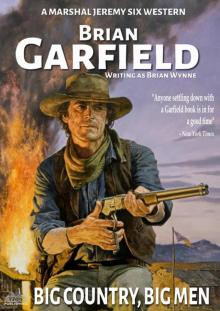 Marshal Jeremy Six #8
Marshal Jeremy Six #8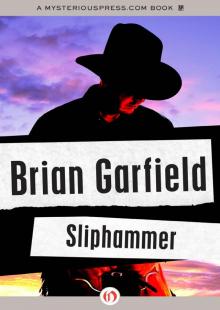 Sliphammer
Sliphammer Line of Succession
Line of Succession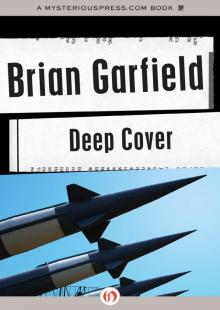 Deep Cover
Deep Cover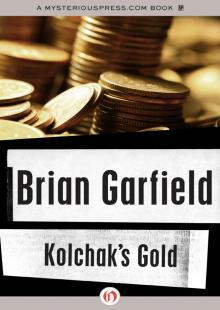 Kolchak's Gold
Kolchak's Gold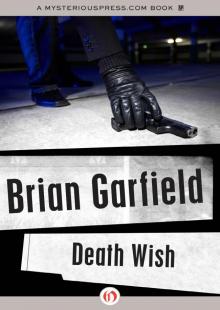 Death Wish
Death Wish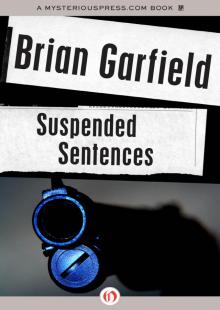 Suspended Sentences
Suspended Sentences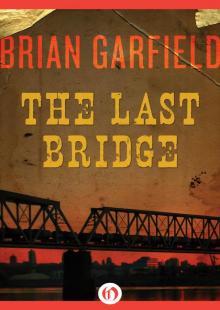 The Last Bridge
The Last Bridge Relentless
Relentless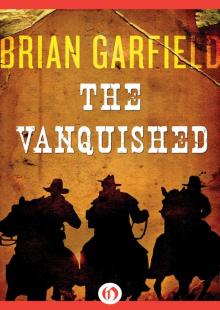 The Vanquished
The Vanquished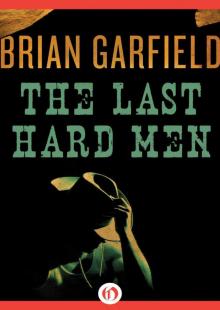 The Last Hard Men
The Last Hard Men Hit and The Marksman
Hit and The Marksman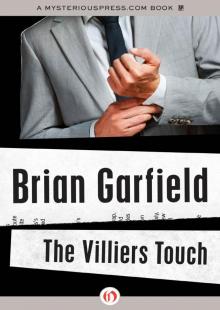 Villiers Touch
Villiers Touch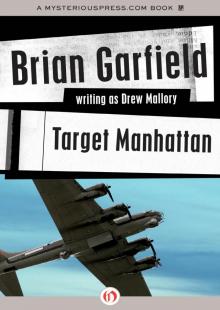 Target Manhattan
Target Manhattan Marchand Woman
Marchand Woman What of Terry Conniston?
What of Terry Conniston?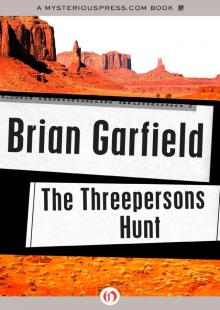 Threepersons Hunt
Threepersons Hunt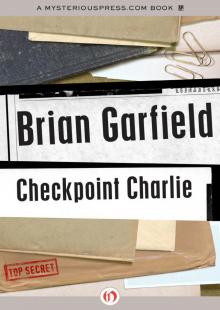 Checkpoint Charlie
Checkpoint Charlie Romanov Succession
Romanov Succession Necessity
Necessity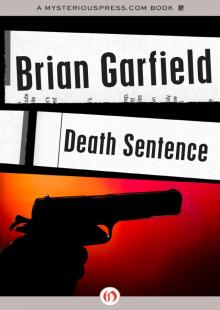 Death Sentence
Death Sentence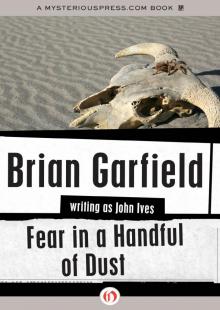 Fear in a Handful of Dust
Fear in a Handful of Dust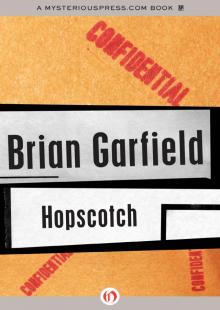 Hopscotch
Hopscotch